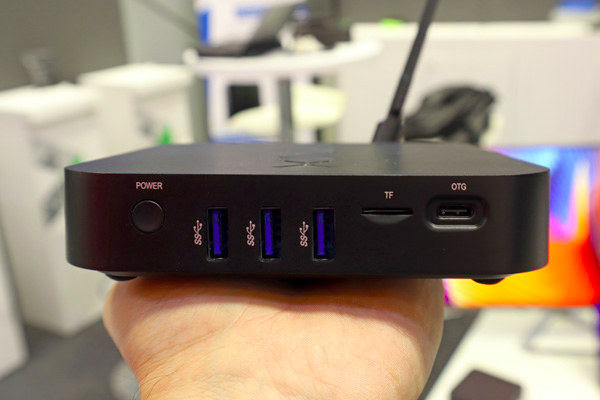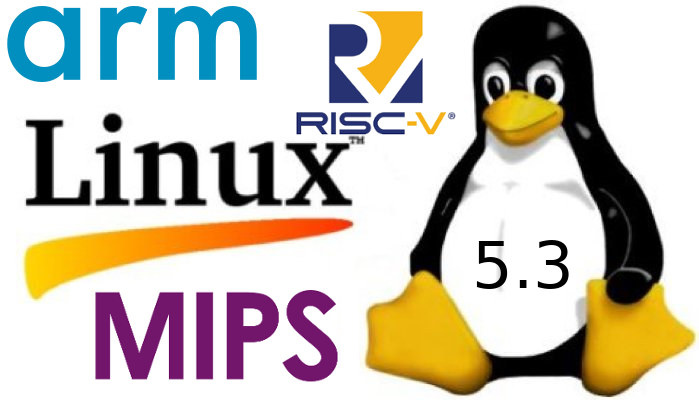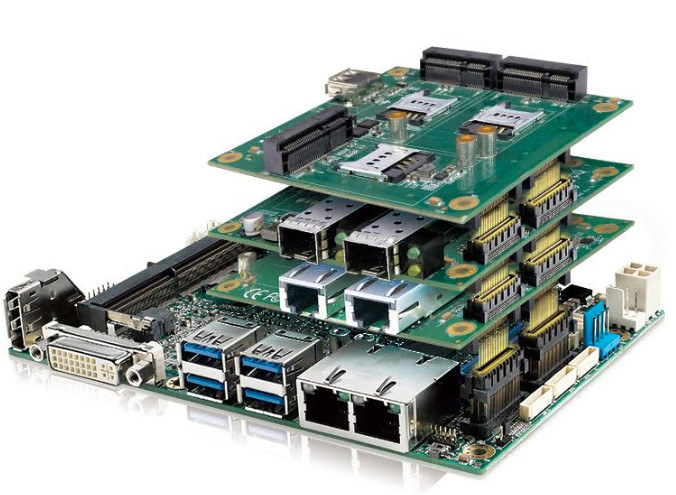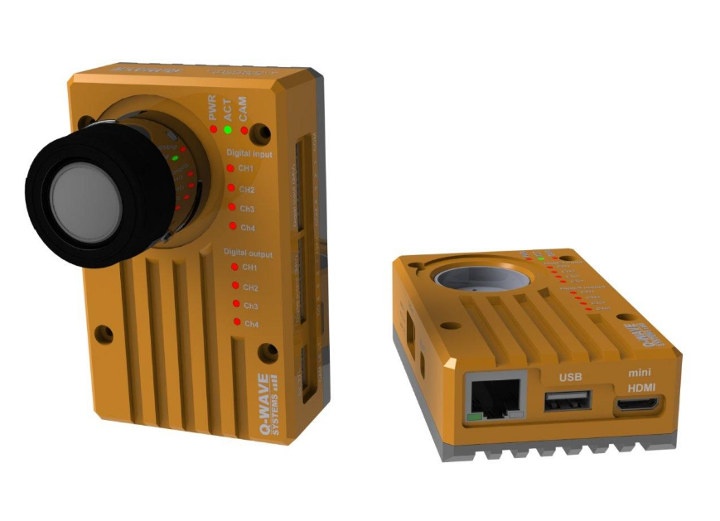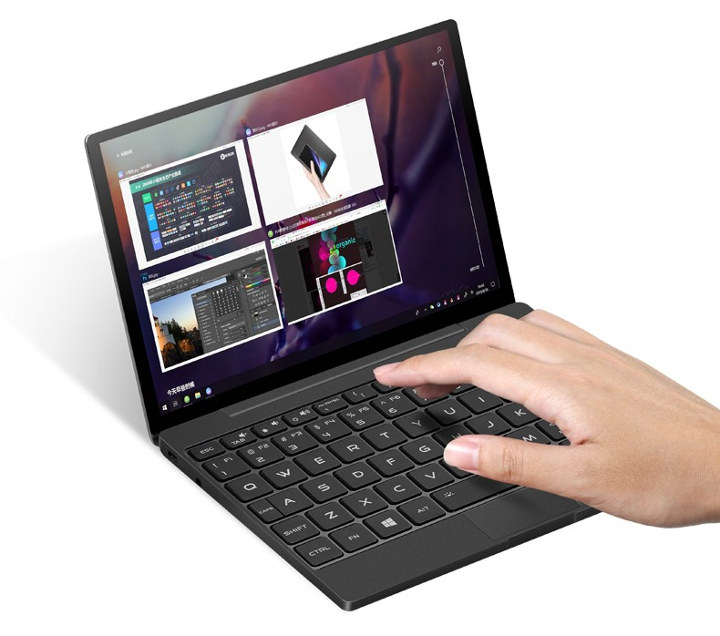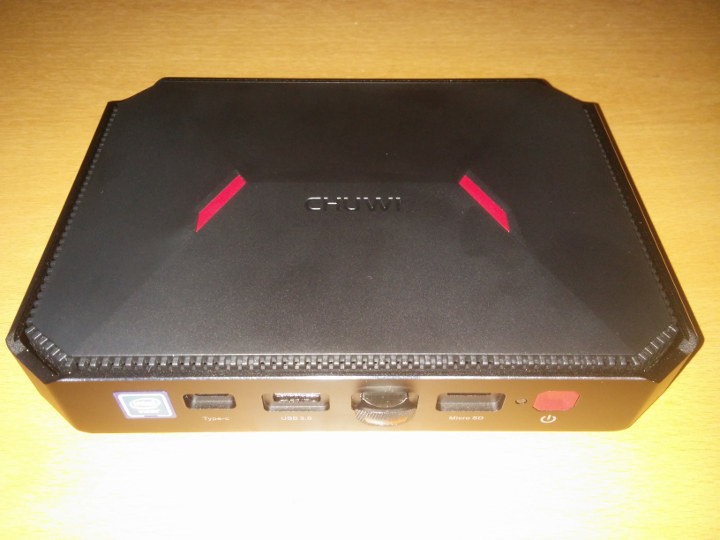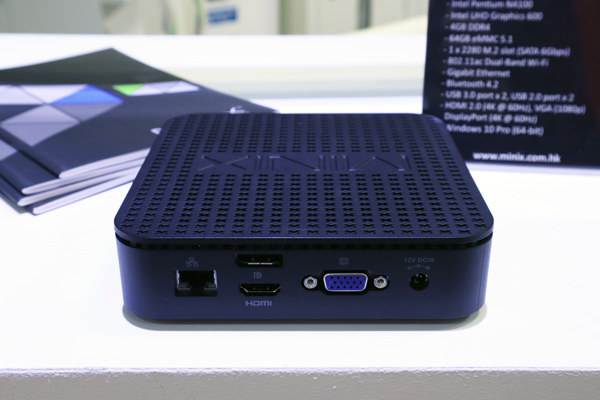We’ve already seen MINIX showcased a fanless Gemini Lake mini PC at IFA 2019, but the company also had two upcoming Amlogic TV boxes on display at the event. MINIX NEO T5 features Amlogic S905X2 quad-core Cortex-A53 processor, while MINIX NEO U22-XJ TV box is powered by an Amlogic S922XJ hexa-core Cortex-A73/A53 processor. The former runs Android TV 9.0 with Google certification, while the latter comes pre-loaded with Android 9.0 OS. I had never heard about S922XJ, and apparently, Amlogic has yet to formally announce it, so I wonder whether it could be Amlogic S922X-B tipped by Khadas a while ago with higher CPU & GPU clock speeds. The processor will also come with Dolby Vision and Dolby Audio licenses, and Amlogic has a history of giving different processor names depending on the audio licenses. MINIX NEO T5 Specifications: SoC – Amlogic S905X2 quad-core Arm Cortex-A53 processor with Arm Mali-G31 […]
Linux 5.3 Release – Main Changes, Arm, MIPS & RISC-V Architectures
Linus Torvalds has just announced the release of Linux 5.3: So we’ve had a fairly quiet last week, but I think it was good that we ended up having that extra week and the final rc8. Even if the reason for that extra week was my travel schedule rather than any pending issues, we ended up having a few good fixes come in, including some for some bad btrfs behavior. Yeah, there’s some unnecessary noise in there too (like the speling fixes), but we also had several last-minute reverts for things that caused issues. One _particularly_ last-minute revert is the top-most commit (ignoring the version change itself) done just before the release, and while it’s very annoying, it’s perhaps also instructive. What’s instructive about it is that I reverted a commit that wasn’t actually buggy. In fact, it was doing exactly what it set out to do, and did it […]
PineTime is a $25 Smartwatch / Companion for PinePhone Linux Phone
We’ve recently seen Linux smartphones are coming in a few weeks or months, but the $150 PinePhone may not come alone, and soon be joined by a $25 companion, namely PineTime smartwatch. That’s what we learned through a tweet by Pine64 explaining the PineTime is a Linux smartphone companion that can run FreeRTOS or Arm Mbed operating systems. It will be a side-project however, and the focus is still on PinePhone and Pinebook Pro, meaning it will take a while depending on the level of community engagement. Available information is limited to the discussion in the tweet at this stage, but we do know the watch will be made of zinc alloy & plastic, come with a charging dock, a 20 mm wristband, an heart-rate monitor and last several days on a charge. We’ve also seen people interested in porting ZephyrOS to the watch, and others would like to make […]
Whiskey Lake-UE SBC & Fanless Embedded Computer Target Industry 4.0 & AIoT Applications
Industrial AIoT Vecow makes its latest entry into the industrial 4.0 and AIoT application market place with the announcement of the Whiskey Lake-UE based EMBC – 3000 3.5″ SBC and the SPC 5200 slim fanless computer system. The units are extremely similar, and it would seem the EMBC-3000 is inside the SPC-5200, so there are several options for the system features and setups. Whiskey Lake-UE processors, such as Core i7-8665UE, are the embedded, long-lifespan version of Whiskey Lake-U processors. Company Background Vecow has a long history in the embedded industrial computing industry, going back to 2011. Their latest embedded systems are a 3.5 form-factor SBC, the EMBC-3000 and the SPC-5200 slim build embedded computer, both built around the 8th Gen Whiskey Lake-UE processors with 15W TDPs. The EMBC-3000 are available with i-series or Celeron processors. EMBC-3000 SBC Intended Uses and Application The EMBC-3000 has been developed with machine vision and […]
Raspberry Pi CM3+ based EagleEye Smart Camera Works with OpenCV and LabVIEW NI Vision
We previously covered Q-Wave Systems’ Melon S3 board combining a Xilinx Spartan 3E FPGA with ESP8266, but the Thai company is back is a completely different product: EagleEye Smart Camera. The board is powered by Raspberry Pi Compute Module 3+ (CM3+) with 16GB or 32GB flash, and equipped with a 5 MP camera for machine vision and robotics applications. There are two version of the board Uno and Industrial with the latter adding 24V digital input and outputs, circuit protections and support for industrial temperature range. EagleEye smart camera key features & specifications: SoM – Raspberry Pi CM3+ with Broadcom BCM2837B0 quad core cortex-A53 processor, 1 GB RAM, and 16GB or 32 GB flash Camera – 5 MP OV5647 image sensor, CS/M12 lens holder + 4mm CS lens Video Output – mini HDMI port Networking – 10/100M Ethernet USB – 1x USB 2.0 host port up to 1.2A Expansion Uno […]
MAG1 Intel Core m3-8100Y Mini Laptop Sells for $590 and up in China
In recent years, we’ve seen mini laptops with sub-9″ displays from companies like GPD, One Mix, and CHUWI featuring Intel Gemini Lake or Amber Lake processors. There’s another company joining the fray with MAG1 “Magic Small” mini laptop with an 8.9″ display, an Intel Core m3-8100Y Amber Lake processor coupled with 8GB or 16GB RAM, and 256GB or 512GB SSD storage that’s currently selling for 4,199 RMB (~$593 US) and up on JD.com. MAG1 specifications: SoC – Intel Core m3-8100Y dual-core/quad-thread Amber Lake processor @ 1.1 / 3.4 (Turbo) GHz with Intel UHD Graphics 615; 5W TDP System Memory / Storage Configurations 8GB DDR3 RAM + 256GB PCIe SSD + MicroSD slot 16GB DDR3 RAM + 512GB PCIe SSD + MicroSD slot Display – 8.9″ IPS touchscreen display with 2560 x 1600 resolution Video Output – Micro HDMI up to 4K @ 60 Hz Audio – Built-in microphone, 3.5mm audio […]
CHUWI GBOX Pro Review – Intel Atom x7-E3950 mini PC Tested with Windows 10 & Ubuntu 18.04
CHUWI has released a new mini PC called the GBox Pro. This is a passively cooled mini PC that uses the slightly older Apollo Lake Intel Atom x7-E3950 CPU which is a quad core 4-thread 1.60 GHz processor boosting to 2.00 GHz with Intel’s HD Graphics 505. The GBox Pro is somewhat physically larger than typical recent mini PCs and consists of a 189 x 139 x 39 mm (7.44 x 5.47 x 1.54 inches) rectangular case with a front panel that includes the power button, micro SD slot, a couple of USB 3.0 ports and a Type-C USB port and then on the rear, a headphone jack, two USB 2.0 ports, a Gigabit ethernet port, an HDMI (2.0) port and a VGA interface. The full specifications include: The GBox Pro comes with 64GB of eMMC with pre-installed Windows 10 Home (version 1809 OS build 17763.316) together with 4GB of […]
MINIX Unveils NEO G41V-4 Fanless Windows 10 Pro Mini PC
MINIX has launched several Intel-based mini PCs in recent years, but while their lower-end models such as MINIX NEO Z83-4U were fanless, their Apollo Lake (NEO N42C-4) and Gemini Lake (NEO J50C-4) mini PCs all came with a fan, albeit a pretty quiet one. But the company demonstrated a new fanless Gemini Lake mini PC at IFA 2018 with a new approach to thermal cooling compared to their previous fanless design. MINIX NEO G41V-4 mini PC is powered by an Intel Celeron N4100 quad-core processor coupled with 4GB DDR4 RAM, 64GB eMMC flash, and an easy to access M.2 SSD expansion slot. MINIX NEO G41V-4 specifications: SoC – Intel Celeron N4100 quad-core Gemini Lake processor @ with Intel UHD Graphics 600 System Memory – 4GB DDR4 RAM @ 2400 MHz (soldered) Storage – 64GB eMMC 5.1 flash (soldered), M.2 2280 SATA 3.0 slot, MicroSD card slot Video Output HDMI 2.0a […]


